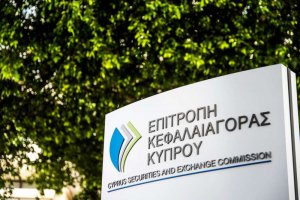CySEC to become regulator of crypto firms in Cyprus
The Cypriot Ministry of Finance has proposed key changes to the existing Prevention and Suppression of Money Laundering and Terrorist Financing Law.

Key among these changes is the obligation for every service provider dealing with crypto assets to register with the Cyprus Securities and Exchange Commission (CySEC). Firms or individuals failing to adhere to this new stipulation will face severe consequences. Penalties for noncompliance range from hefty fines, potentially reaching up to €350,000 ($370,000), to custodial sentences lasting up to five years. In some cases, violators may face a combination of both fine and imprisonment.
Per a report by the Cyprus Mail, the Ministry of Finance formally submitted its amendments package to the House of Representatives Standing Committee on Legal Affairs, Justice, and Public Order.
A pivotal motivation for these reforms stems from the recommendations of the Financial Action Task Force (FATF), a global inter-governmental body established to combat money laundering and the financing of terrorism.
Additionally, the proposed amendments give considerable weight to the suggestions presented in the report by the Committee of Experts on the Evaluation of Anti-money Laundering Measures and the Financing of Terrorism (MONEYVAL). Published in November 2022, this report had dissected the state of Cyprus’ AML/CFT measures, providing crucial insights and recommendations to enhance the country’s resilience against financial threats.
However, not all have welcomed these amendments with open arms. The Cyprus Bar Association expressed concerns, particularly about the mandate requiring crypto service providers licensed in other European countries to register anew with the CySEC. This particular provision was, notably, integrated into the amendments by the CySEC itself.
On the corporate front, the reception to Cyprus’s regulatory stance has been generally positive. Social brokerage eToro secured its crypto asset service provider registration from the CySEC in September. It followed in the footsteps of Bybit, which achieved the same recognition in June.
But not all crypto giants see a future in Cyprus under the new regulations. Binance, the world’s largest crypto exchange, which has been navigating turbulent regulatory waters globally, opted to deregister from the Cyprus market in July. The firm cited a strategic shift towards focusing on larger, registered European Union markets as its rationale.
A policy statement issued in 2021 sets out detailed requirements for crypto firms seeking registration in the regulator’s CASP register. This register is publicly accessible and include information such as the crypto firm’s name, the legal form, its address and services.
The policy also introduced a definition for crypto assets that slightly extends beyond its traditional legal status.
Depending on their structure, the Cypriot regulator says crypto assets may qualify as financial instruments under the Investment Services and Activities and Regulated Markets Law. Additionally, while cryptocurrencies cannot be regarded as legal tender, they may qualify as “electronic money” or “e-money” in the sense of the Electronic-Money Directive.









